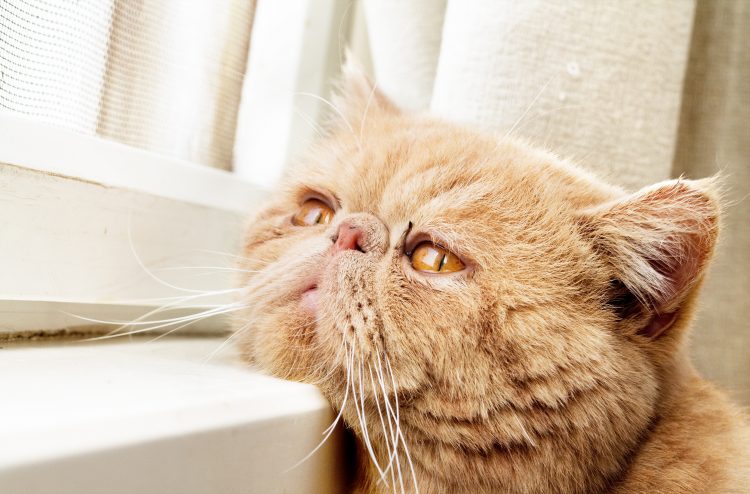Senior cats are your affectionate long term companions that have won your heart. You have had them for years, know their in’s and out’s, and what makes them unique, and in turn they know how to make you smile.
Although all cats age differently depending on their diet, activity levels and personality, cats generally begin their senior years around the age of seven.
With the cooler months approaching, a common medical problem to be aware of when your cat reaches its senior years is arthritis. Arthritis is one of the most under diagnosed and under treated condition in cats. About 90% of cats over the age of 12 are suffering from some form of arthritis and yet many owners are unaware of this.
Because cats are small and quite agile they can often cover up mobility difficulties and pain from arthritis. And unlike dogs, cats generally don’t limp with arthritis but will show subtle changes in their lifestyle or behavior such as; reluctance to jump up to or down from obstacles or go through a cat flap, sleeping more often and for longer periods of time, stiff or creaky joints, matted or scurfy coat from lack of self-grooming, less tolerance for people or more withdrawn attitude.
There are many ways to help with the pain of this condition such as a joint support supplement. A non-steroidal anti-inflammatory may be prescribed by your veterinarian but it is recommended to run a full blood panel on your pet before using this medication.
Changing your cat’s exercise routine and altering their movement around the house may also help to decrease discomfort and further damage to the joints; slick floors, jumping up on or down from high surfaces and furniture, and stairs are all obstacles that may need to be avoided or reduced is possible for your pets comfort.
Maintaining activity and play at low levels is very important. Creating places where your cat can easily climb and hide, and playing gentle games with him/her are great ways to keep them active and keep their mind sharp while reducing the impact on their joints. Relocating their food, water, and litter box may also be necessary for ease of access.
Controlling your cats’ weight can also be a major factor in keeping their joints healthy and pain free. Excess weight can put extra strain and pressure on the joints which increase the risk of arthritis at any age. Mobility/Joint Support diets can also add great support and relief for sore, swollen joints.
Just like people, the cooler weather can elevate your cat’s aches and pains associated with arthritis. Make sure they have a warm, cozy bed to curl up on where they can sleep those rainy days away.
A wise precaution for cats over the age of seven is to have, at least, annual health exams to assess their health and catch arthritis in the early stages. Although you cannot prevent arthritis from happening, you can certainly help slow down the process and provide ways to keep your beloved feline friend as pain-free and limber as possible during their senior years.
The most important thing to remember is to cherish your cat’s senior years; they come too suddenly and pass too quickly. They will be some of the best years and moments you will have with an old, loyal and loving friend. So make every day count!
Written by Van Isle Veterinary Hospital




